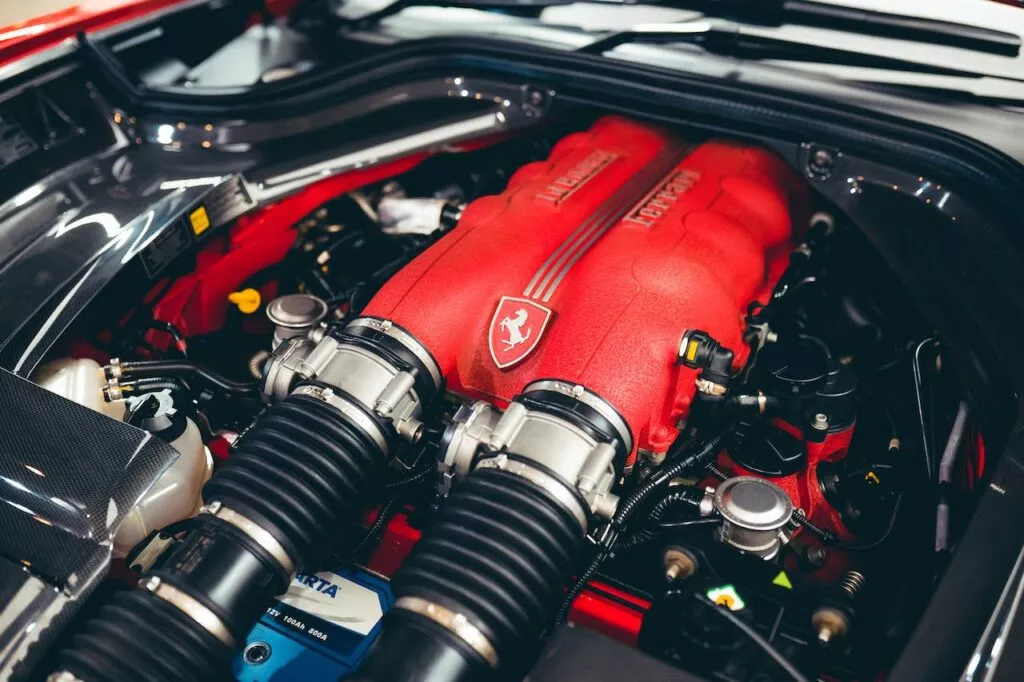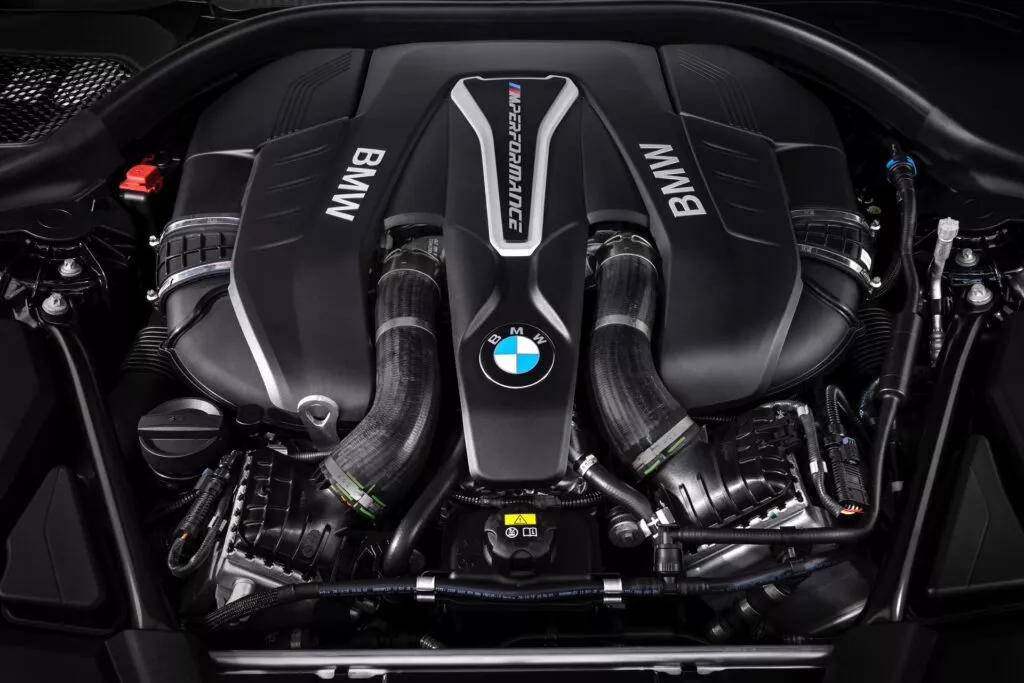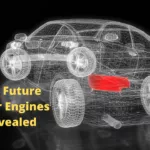In the ever-evolving world of automobiles, the engine remains the beating heart, dictating performance, efficiency, and ultimately, your driving experience. Choosing the right engine can be overwhelming, especially with the diverse options available in 2024. This comprehensive guide delves into the best car engines currently on the market, empowering you to make an informed decision aligned with your specific needs.
From the exhilarating roar of gasoline powerhouses to the silent hum of electric marvels, we’ll explore a variety of engines, encompassing internal combustion, electric, and hybrid options. We’ll delve into their technical specifications, performance capabilities, and real-world examples to provide a clear understanding of their strengths and potential drawbacks.
Whether you prioritize raw power, unparalleled fuel economy, or environmental consciousness, this guide equips you with the knowledge to navigate the complex world of car engines and identify the perfect match for your next automotive adventure. Let’s embark on this journey to discover the best car engines of 2024!
Table of Contents
Best Car Engines of 2024: Internal Combustion Engines

Internal combustion engines (ICE) have dominated the automotive landscape for decades, offering a familiar and reliable source of power. While facing increasing competition from electric and hybrid alternatives, ICE engines continue to evolve, delivering impressive performance and efficiency. Let’s explore two prominent categories within the ICE realm: gasoline and diesel engines.
Gasoline Engines: Unleashing Exhilarating Performance
Gasoline engines continue to be a popular choice for drivers seeking a thrilling and familiar driving experience. They offer a satisfying blend of power, performance, and readily available fuel infrastructure. Let’s dive deeper into two captivating examples of gasoline engines dominating the 2024 automotive landscape:
1. BMW M TwinPower Turbo 4-cylinder engine:
This powerhouse epitomizes the exhilarating potential of gasoline engines. Its twin-turbocharged design unleashes an impressive 382 horsepower and 369 lb-ft of torque, translating into exhilarating acceleration and responsive handling. This engine finds its home in various BMW models, including the:
- BMW 3 Series: Renowned for its sharp handling and dynamic driving experience, the 3 Series benefits immensely from the M TwinPower Turbo engine’s potent thrust, transforming everyday commutes into engaging journeys.
- BMW M240i: This performance-oriented coupe pushes the boundaries of driving excitement with the M TwinPower Turbo engine at its heart. The combination of exhilarating power and agile handling delivers a truly exhilarating driving experience.
2. Mercedes-AMG twin-turbocharged V8 engine:
For those seeking unparalleled power and a truly exhilarating driving experience, the Mercedes-AMG V8 engine stands out as a dominant force. This masterpiece of engineering boasts up to 617 horsepower and a staggering 627 lb-ft of torque, transforming vehicles like:
- Mercedes-AMG C63: This high-performance sedan transcends the boundaries of everyday driving, offering exhilarating acceleration and track-worthy capabilities thanks to the potent V8 engine.
- Mercedes-AMG S63: This luxurious powerhouse combines unparalleled power with refined comfort. The AMG V8 engine propels the S63 with exhilarating force, while maintaining a sense of sophistication and grace.
Advantages of Gasoline Engines:
- Proven technology: With decades of development and refinement, gasoline engines offer reliable performance and established maintenance practices.
- Thrilling performance: Many gasoline engines, like the examples mentioned above, deliver exhilarating power and responsive handling, providing an engaging driving experience.
- Readily available fuel: Gasoline stations are widely available, making refueling convenient and accessible.
Considerations:
- Fuel costs: Gasoline prices can fluctuate, and these engines generally have lower fuel efficiency compared to hybrid or electric alternatives.
- Emissions: Gasoline engines contribute to greenhouse gas emissions, which is a growing concern for environmentally conscious consumers.
- Maintenance: Regular maintenance is crucial for optimal performance and longevity, which can add to the ownership costs.
Choosing a gasoline engine is a personal decision that should be based on your individual priorities. If you prioritize exhilarating performance, readily available fuel, and a familiar driving experience, these gasoline engines offer compelling options. However, it’s essential to weigh the potential drawbacks, such as fuel costs and environmental impact, before making your final decision.
The next section will explore the world of diesel engines, highlighting their unique characteristics and potential benefits.
Diesel Engines: Balancing Power and Efficiency
While facing increasing competition from other options, diesel engines continue to hold a niche in the automotive market, offering a unique blend of power, efficiency, and torque. Let’s explore two prominent examples of diesel engines making their mark in 2024:
1. BMW TwinPower Turbo 6-cylinder engine:
This BMW offering showcases the potential of modern diesel technology. Utilizing twin-turbochargers, it delivers a compelling combination of 265 horsepower and 400 lb-ft of torque. This translates to:
- Smooth and powerful performance: The engine provides ample power for effortless highway cruising and confident towing capabilities.
- Impressive fuel economy: Compared to gasoline counterparts, diesel engines often offer better fuel efficiency, potentially leading to lower running costs.
This engine finds its home in various BMW models, including:
- BMW 3 Series: The efficient nature of the diesel engine complements the 3 Series’ renowned handling, making it a compelling choice for drivers seeking a balance of performance and fuel economy.
- BMW X5: This versatile SUV benefits from the diesel engine’s torquey nature, offering confident towing capabilities and excellent highway performance.
2. Audi V6 TDI Clean Diesel engine:
Audi’s offering demonstrates the strides made in clean diesel technology. This engine generates 272 horsepower and 443 lb-ft of torque while adhering to stringent emissions standards. It powers vehicles like:
- Audi A6: This executive sedan combines efficient performance with luxurious comfort. The V6 TDI engine provides ample power for confident acceleration and effortless highway cruising.
- Audi Q7: This versatile SUV leverages the diesel engine’s torque for capable towing and excellent fuel economy on long journeys.
Advantages of Diesel Engines:
- Torquey performance: Diesel engines often deliver impressive torque, translating to excellent towing capabilities and strong acceleration from low revs.
- Fuel efficiency: Compared to gasoline engines of similar power, diesel engines can offer better fuel economy, potentially resulting in lower running costs.
- Durability: Diesel engines are known for their robust construction and longevity, potentially offering lower long-term ownership costs.
Considerations:
- Higher upfront cost: Diesel vehicles typically have a higher initial purchase price compared to gasoline counterparts.
- Availability of fuel: Diesel fuel stations are less prevalent than gasoline stations, which can be inconvenient for some drivers.
- Emissions: While cleaner than older diesel engines, they still contribute to greenhouse gas emissions and may face stricter regulations in the future.
Choosing a diesel engine requires careful consideration of your needs and priorities. If you prioritize fuel efficiency, torquey performance, and potential long-term cost savings, diesel engines offer a compelling option. However, weigh the higher upfront cost, limited fuel availability, and potential future regulations before making your decision.
The next section will delve into the exciting world of electric and hybrid engines, exploring their unique capabilities and potential benefits.
Electric Engines: Ushering in a New Era of Sustainable Power
Electric engines are rapidly transforming the automotive landscape, offering a silent, powerful, and environmentally friendly alternative to traditional combustion engines. In 2024, these engines continue to evolve, pushing the boundaries of performance and range. Let’s explore two pioneering examples:
1. Tesla Model 3 Performance engine:
This electric powerhouse exemplifies the exhilarating potential of electric vehicles. It boasts a single electric motor producing a staggering 480 horsepower and 383 lb-ft of torque, translating into:
- Instantaneous acceleration: The electric motor delivers its full torque from the moment you press the pedal, resulting in exhilarating acceleration that rivals high-performance gasoline engines.
- Silent operation: The electric engine eliminates engine noise, creating a serene and comfortable driving experience.
2. Lucid Air Dream Edition engine:
Lucid Motors pushes the boundaries of electric luxury with the Air Dream Edition’s engine. This dual-motor setup unleashes a mind-blowing 1,050 horsepower and 933 lb-ft of torque, offering:
- Unparalleled performance: This engine propels the Lucid Air from 0 to 60 mph in a mere 2.5 seconds, redefining the concept of electric vehicle acceleration.
- Extended range: Despite its immense power, the Lucid Air boasts an impressive range, allowing for longer journeys without range anxiety.
Advantages of Electric Engines:
- Environmental friendliness: Electric vehicles produce zero tailpipe emissions, contributing to cleaner air and a more sustainable future.
- Low operating costs: Electricity is often cheaper than gasoline, potentially leading to significant savings on fuel costs.
- Smooth and quiet operation: The absence of an internal combustion engine eliminates noise and vibrations, resulting in a more comfortable driving experience.
Considerations:
- Limited range: While improving, the range of electric vehicles can be shorter than gasoline vehicles, requiring more strategic planning for long journeys.
- Charging infrastructure: Access to charging stations, especially fast-charging stations, can be limited in some areas.
- Higher upfront cost: Electric vehicles typically have a higher initial purchase price compared to gasoline counterparts.
Choosing an electric engine is a significant decision, often driven by environmental consciousness and a desire for a unique driving experience. However, carefully consider the limitations in range and charging infrastructure, along with the higher upfront cost, before making your choice.
The next section will explore hybrid engines, which combine the benefits of electric and gasoline engines, offering a versatile and potentially range-extending option.
Hybrid Engines: Bridging the Gap Between Efficiency and Power
Hybrid engines offer a compelling solution for drivers seeking a balance between efficiency, power, and extended range. These engines combine an electric motor with a traditional gasoline engine, allowing for both electric-only driving and gasoline-powered operation. Let’s explore two prominent examples of hybrid engines making waves in 2024:
1. Toyota Prius Prime engine:
This pioneering hybrid system exemplifies the potential of fuel efficiency in the hybrid segment. It combines a 1.8-liter gasoline engine with an electric motor to deliver a combined output of 121 horsepower. The Prius Prime boasts:
- Impressive fuel economy: This hybrid system enables the Prius Prime to achieve up to 133 miles per gallon in electric-only mode, making it a champion of fuel efficiency.
- Versatile driving: Drivers can choose between electric-only mode for short trips and gasoline-powered operation for longer journeys, offering flexibility and range extension.
2. Hyundai Sonata Hybrid engine:
Hyundai’s offering showcases the evolving capabilities of hybrid technology. It combines a 1.6-liter gasoline engine with an electric motor to produce a combined output of 192 horsepower. The Sonata Hybrid delivers:
- Balanced performance: This hybrid system provides adequate power for everyday driving while maintaining impressive fuel economy.
- Spacious and comfortable interior: The Sonata Hybrid offers a comfortable and well-equipped cabin, making it a suitable choice for families and daily commutes.
Advantages of Hybrid Engines:
- Fuel efficiency: Hybrid engines often achieve significantly better fuel economy compared to traditional gasoline engines, potentially leading to substantial cost savings.
- Reduced emissions: Compared to gasoline engines, hybrids produce lower emissions, contributing to a cleaner environment.
- Extended range: The combination of electric and gasoline power provides extended range compared to pure electric vehicles, reducing range anxiety for longer journeys.
Considerations:
- Higher upfront cost: Hybrid vehicles typically have a higher initial purchase price compared to gasoline counterparts.
- Battery degradation: Hybrid batteries can degrade over time, potentially requiring replacement and adding to ownership costs.
- Less engaging driving experience: Compared to some gasoline or electric vehicles, hybrids may offer a less engaging driving experience due to the focus on fuel efficiency.
Choosing a hybrid engine is a strategic decision for drivers seeking a balance between efficiency, range, and practicality. However, weigh the higher upfront cost, potential battery degradation, and potentially less engaging driving experience before making your final decision.
By exploring the various engine options available in 2024, from the exhilarating power of gasoline and diesel engines to the silent efficiency of electric and hybrid options, you can make an informed decision that aligns perfectly with your individual needs and priorities. Remember, the “best” engine ultimately depends on your driving habits, environmental consciousness, and budget constraints.
Similar Posts: Expert Tips: How To Improve Car Mileage
Frequently Asked Questions about Car Engines in 2024

What is the best car engine in the world
Determining the “best” car engine depends on various factors such as performance, efficiency, reliability, and suitability for specific applications. However, some engines have gained widespread recognition for their engineering prowess and overall excellence. Here are a few examples:
Toyota 2JZ-GTE: Renowned for its robustness and potential for high horsepower output, the 2JZ-GTE engine found in vehicles like the Toyota Supra has become iconic in the automotive world.
Honda K20/K24: Honda’s K-series engines are celebrated for their high-revving nature, smooth power delivery, and aftermarket support, making them popular choices for enthusiasts and racers alike.
BMW S55: Featured in models like the BMW M3/M4, the S55 engine impresses with its combination of performance, responsiveness, and technological sophistication.
Ford EcoBoost: Ford’s EcoBoost engines, available in various displacements, are recognized for their balance of power and fuel efficiency, leveraging turbocharging and direct injection technology.
Porsche Flat-Six: Porsche’s horizontally opposed, or “flat-six,” engines have long been revered for their distinctive sound, performance, and engineering excellence, powering iconic models like the 911.
Ultimately, the best engine for a particular vehicle depends on factors such as intended use, driving preferences, and budget. What may be ideal for one person or vehicle might not necessarily be the best choice for another.
Which is the most powerful car engine in 2024?
The title of “most powerful” depends on how you define it. The Lucid Air Dream Edition engine boasts the highest horsepower (1,050 hp), while the Mercedes-AMG V8 engine delivers the most torque (627 lb-ft).
Which engine is the most fuel-efficient?
The Toyota Prius Prime reigns supreme in fuel efficiency, achieving up to 133 miles per gallon in electric-only mode.
What are the advantages of electric engines?
Electric engines offer numerous advantages, including:
Environmental friendliness: Zero tailpipe emissions contribute to cleaner air.
Low operating costs: Electricity is often cheaper than gasoline, potentially leading to significant savings.
Smooth and quiet operation: The absence of an internal combustion engine eliminates noise and vibrations.
What are the disadvantages of electric engines?
Some potential drawbacks of electric engines include:
Limited range: While improving, the range of electric vehicles can be shorter than gasoline vehicles, requiring more strategic planning for long journeys.
Charging infrastructure: Access to charging stations, especially fast-charging stations, can be limited in some areas.
Higher upfront cost: Electric vehicles typically have a higher initial purchase price compared to gasoline counterparts.
Are hybrid engines a good choice?
Hybrid engines offer a compelling option for drivers seeking a balance between efficiency, power, and extended range. However, consider the higher upfront cost, potential battery degradation, and potentially less engaging driving experience before making your decision.
What are the different engine options available in 2024 cars?
In 2024, car engines come in various forms, each with its own advantages and disadvantages:
Internal combustion engines (ICE): These traditional engines come in gasoline and diesel options, offering familiar performance and readily available fuel infrastructure.
Electric engines: These engines power electric vehicles (EVs) with zero tailpipe emissions and offer silent operation and potentially lower running costs.
Hybrid engines: Combining electric motors with gasoline engines, hybrids provide a balance of efficiency, power, and extended range compared to pure EVs.
What are the most fuel-efficient car engines in 2024?
Hybrid and electric engines generally offer superior fuel efficiency compared to gasoline engines. The Toyota Prius Prime stands out with an impressive 133 miles per gallon in electric-only mode.
What are the most powerful car engines in 2024?
Power can be measured in horsepower or torque. The Lucid Air Dream Edition boasts the highest horsepower (1,050 hp), while the Mercedes-AMG V8 engine delivers the most torque (627 lb-ft).
Conclusion
The best car engine of 2024 depends on your individual needs and preferences. If you are looking for a powerful and performance-oriented engine, then the BMW M TwinPower Turbo 4-cylinder engine or the Mercedes-AMG twin-turbocharged V8 engine are great options. If you are looking for an efficient and fuel-friendly engine, then the BMW TwinPower Turbo 6-cylinder engine or the Audi V6 TDI Clean Diesel engine are great options. If you are looking for an engine that is environmentally friendly and provides excellent performance, then the Tesla Model 3 Performance engine or the Lucid Air Dream Edition engine are great options.
The future of car engines is bright. With the development of new technologies, such as electric and hybrid engines, car engines are becoming more efficient and powerful than ever before. In the coming years, we can expect to see even more amazing car engines that will redefine what is possible.










